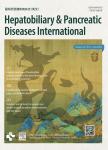Genetic factors for individual administration of immunosuppressants in organ transplantation
Genetic factors for individual administration of immunosuppressants in organ transplantation作者机构:Key Laboratory of Combined Multi-organ Transplantation Ministry of Public Health the First Affiliated Hospital Zhejiang University School of Medicine Hangzhou 310003 China.
出 版 物:《Hepatobiliary & Pancreatic Diseases International》 (国际肝胆胰疾病杂志(英文版))
年 卷 期:2006年第5卷第3期
页 面:337-344页
学科分类:1002[医学-临床医学] 100210[医学-外科学(含:普外、骨外、泌尿外、胸心外、神外、整形、烧伤、野战外)] 10[医学]
主 题:cytochrome P4503A P-glycoprotein pharmacogenetics individual administration
摘 要:BACKGROUND: The immunosuppressive drugs used worldwide have a narrow therapeutic index, which results in a need to individualize the dose regimen for different recipients. The oxidative enzymes cytochrome P450 (CYP)3A and the drug efflux pump P-glycoprotein (P-gp) are two potential factors in the processes of metabolism. Pharmacogenetic study of immunosuppressive drugs has focused on these two enzymes. This review was undertaken to assess the role of single nuclear polymorphisms (SNPs) of these two enzymes in the individual administration of immunosuppressive drugs. DATA SOURCES: An English-language literature search was made using MEDLINE for articles on CYP3A and P-gp in organ transplantation. RESULTS: The SNPs of CYP3A and P-gp are closely correlated to the large variations of cyclosporine and tacrolimus dosage between different patients, although conflicting results were obtained by some authors. CONCLUSIONS: More studies should be conducted to elucidate further the pharmacogenetics of immunosuppressive drugs in organ transplantation, a deep understanding of which would provide an important step toward drug regimen individualization in the posttransplant therapy.



